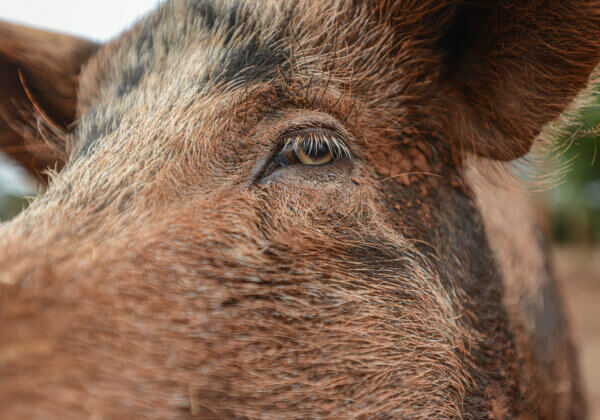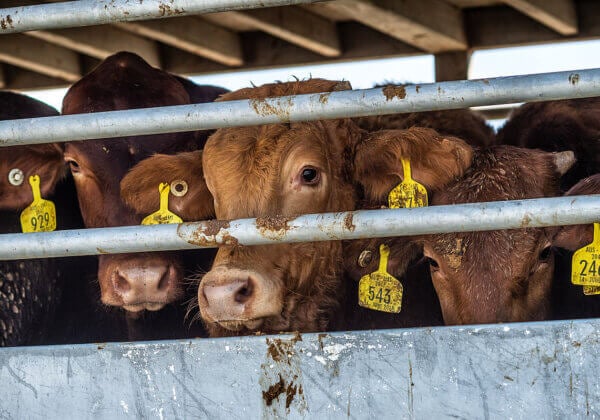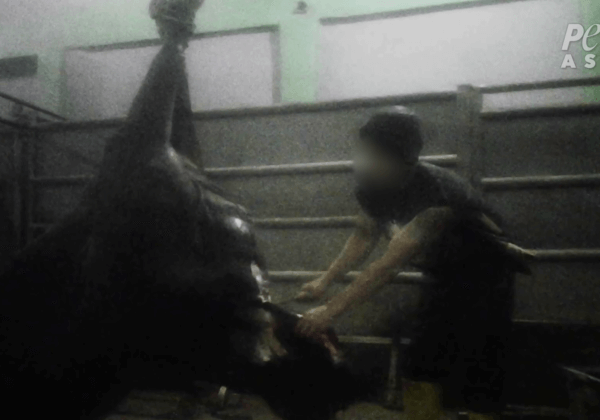Political Advocacy: An Important Activist Tool!
Injustice can be traced to the laws which allow it to exist. Given this, it’s no wonder that activists have continuously engaged with politicians to achieve justice for animals. Though it may seem daunting, this is one of the best things we can do to encourage positive change.
Meaningful engagement with politicians is possible – it’s just a matter of knowing how to do so. Visiting your local Member of Parliament or an MP of particular importance in relation to an animal rights issue is easy and effective. You can find out which electorate you reside in and the name of your current MP by visiting the Australian Electoral Commission website.
Once you find out your MP’s name, you can search online for his or her office contact details. Send an e-mail stating who you are and why you want to talk to him or her. Be clear in your communication. Mention that you live in your MP’s electorate and that you’d like to discuss taking action on an animal issue. If you are not yet of voting age, don’t fret! You can still request a meeting with your local MP, as he or she represents all members of the community. In fact, being young can be an advantage. Young people have the energy and flexibility to be relentless in their activism, and politicians love to seem as if they are in touch with them. It’s a good idea to enlist as many friends as you can to come to the meeting with you in order to demonstrate how many people care about this issue. Also, be aware that it may take a while for a staffer to respond to your e-mail, in which case you should always follow up with a phone call. Build relationships with the staffers, as these are the people who have all the influence when it comes to scheduling and can even help prioritise your issue with the MP.
Once you have secured your meeting, you need to prepare thoroughly. It’s important to know about the person you will be speaking with and what you will be speaking to them about. This means researching information about your MP’s background. Where did he or she go to school? What occupations has he or she had? Is he or she a Minister or Shadow Minister? All these factors will influence how you speak to your MP. For example, if you know your MP has a Bachelor of Law and you’d like to talk to him or her about factory-farmed rabbits, you might want to highlight how ludicrous it is that rabbits’ welfare interests are treated very inconsistently by the law and that the rights of rabbits who are animal companions are very different from the rights of rabbits who are raised on fur farms. If you know your MP supports something that has links to your issue, use it as a talking point! It’s important to speak your MP’s language whilst also staying true to your core message. It’s also important to know all there is to know about the topic you will be speaking about. For example, if you are meeting to talk about live export, find out if there have been any recent developments overseas or domestically and what the previous actions and reactions by your MP and his or her party have been.
Once you have prepared thoroughly, you need to create a strategy for how you will broach this subject with your MP and what your “ask” will be. Your “ask” is a plan of action that you will leave your MP with – what you want him or her to do after your conversation. This can be anything from speaking in Parliament in order to raise the profile of the issue, from voting a certain way for a bill, to introducing a bill themselves. It’s important to come up with an action that will help your cause. It’s equally important to have a strategy about how you will approach your MP. An easy way to do this is to create an agenda for your meeting, including a list of things that you want to talk about as well as any supporting research, statistics or even anecdotal evidence from peers in the community. If you have any petitions or letters from others, take these materials to your meeting, too! Remember: your aim is to be convincing.
Additionally, it’s worthwhile to brief all the people who will be participating in the meeting beforehand to establish who will be in charge of bringing up each point of conversation. Participants should address each point of conversation confidently. Disagreements with your MP should be handled by being inquisitive. Enthusiastically ask about his or her beliefs, and don’t be afraid to delve into why your MP has taken a particular stance on something. It’s also a good idea to have someone take notes. After the meeting, you can establish which actions you can take next given what you have just learned. You may have an unsuccessful meeting in that your MP may not be convinced to take the action you requested. However, the meeting may be important because you may learn what is necessary to get him or her to take action in future. Keep in mind that meetings shouldn’t be one-off campaign actions. They should be stepping stones to achieving your ultimate goal.
MPs always say that people rarely take the time to visit their offices, so when someone does, it is extremely powerful. Our political systems often perpetuate injustice, and this is exactly the reason why we must use our voices to target our political leaders. We don’t have to remain silent on issues that matter.
Post written by former PETA Asia-Pacific intern Alyssa Scott








